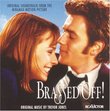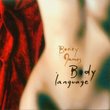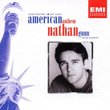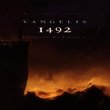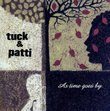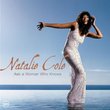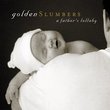| All Artists: Giuseppe Verdi, Fernando Previtali, Rome Opera House Orchestra, Adelio Zagonara, Anna Moffo, Anna Reynolds, Franco Calabrese, Franco Ventriglia, Liliana Poli, Piero de Palma, Richard Tucker, Robert Merrill, Vito Susca Title: Verdi: La Traviata Members Wishing: 0 Total Copies: 0 Label: RCA Release Date: 9/16/1997 Genre: Classical Style: Opera & Classical Vocal Number of Discs: 2 SwapaCD Credits: 2 UPC: 090266888528 |
Search - Giuseppe Verdi, Fernando Previtali, Rome Opera House Orchestra :: Verdi: La Traviata
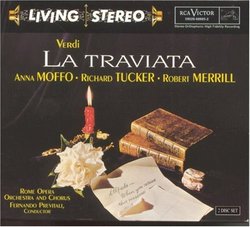 | Giuseppe Verdi, Fernando Previtali, Rome Opera House Orchestra Verdi: La Traviata Genre: Classical
|
Larger Image |
CD DetailsSimilarly Requested CDs
|
CD ReviewsAnna Moffo is a "Traviata" to treasure! Don Cin�filo | Brownsville, Texas, USA | 04/24/2004 (5 out of 5 stars) "In the 60's and 70's, this "Traviata" was widely considered one of the great opera recordings of all time. Anna Moffo, its main protagonist, was the most celebrated interpreter of the title role. In 1960, when this recording was made, Anna Moffo was a beautiful young woman (she was in her mid-20's) who had a gorgeous, and flawless, lyric-coloratura soprano voice that extended spectacularly to high E flat. Moreover, she was gifted with a delicate dramatic art that infused her characterizations with heartbreaking joy and pathos without ever going over the top. No one who witnessed the occasion of her Met debut in 1959 as Violetta Valery in "La Traviata" could have ever forgotten it! Moffo looked and sounded exactly like the young and beautiful, but vulnerable, heroine she portrayed on stage. Fortunately for posterity, Moffo's luminous singing qualities are captured in this exceptional studio recording.In the competing sets in the catalogue, other great divas are either musically outstanding (Sutherland on London, Caballe on RCA), or dramatically effective (Callas, Scotto, both on EMI, Cotrubas on DGG, Gheorghiu on London, and Stratas in the Zeffirelli film). Generally speaking, fine singing actresses seem unable to deliver unscathed the coloratura of the "E strano" and "Sempre libera" arias that conclude act one. Sills on EMI is especially disappointing here. In spite of her incredible lyric coloratura vocal instrument and brilliant dramatic ability, this was not her opera. To my ears she sounds like the ghost of a castle whose sole purpose is to frighten the living. This may be due, in no small measure, to the agonizingly slow pace of conductor Ceccato and the excessive resonance of the recording venue. Only Moffo succeeds in giving a performance that combines the musical and dramatic elements in perfect balance. Her coloratura is effortless, with every high note reaching the stratosphere on target but caressed by deeply moving dramatic inflections. It is somewhat unfortunate that Moffo was often paired with Richard Tucker. The latter was a leading dramatic tenor who was much older than Moffo and whose voice was not right for the role of Violetta's lover Alfredo. I can only fathom what the glorious results might have been had Moffo been paired with the equally young, elegant and ravishing lyric voice of tenor Carlo Bergonzi. Nevertheless, Tucker does modulate his enormous voice to sing as lyrically and with as much youthful ardour as can be expected from him. In the exchanges between the lovers, whether in their rapturous discovery of love in act one, in Alfredo's misguided tirade against Violetta in act two, or in their heartbreaking reunion in act three, the voices of the two principals harmonize to extraordinary effect. While every member of the supporting cast is fine, Robert Merrill stands out in the role of Alfredo's father Giorgio Germont. He is both musically resplendent and dramatically superb. Few baritones in operatic history could have sung the role with a combination of such sheer vocal splendor (seemingly limitless resources) and convincingly warm characterization. The fatherly quality comes through with aplomb in the exchanges with Violetta in act two. One can understand why she would be convinced to respond agreeably to the distressed father's pleas rather than telling him where to go. Fernando Previtalli leads the Rome Opera Orchestra and Chorus in a performance that is at once lilting and emotionally charged. The pacing is perfect. It is neither too fast, as in the Kleiber set with Cotrubas on DGG, nor too slow, as in the Ceccato set with Sills on EMI. The digitally remastered "Living Stereo" sound of 1960 is astonishing for the breadth and clarity of its soundstage, as well as its musicality. It is superior to the muffled sounding, digital recording of 1995 with Gheorghiu on London. Listening to the CD's through an NAD T-550 DVD/CD player, an NAD 317 integrated amplifier and a pair of Paradigm Monitor 7 speakers, an exciting aural panorama was created in my listening room. There was only a hint of hardness in very loud passages and virtually inaudible master tape hiss. Both of these minor flaws would likely be mitigated by a new remastering using the latest technology. Anna Moffo is a "Traviata" to treasure! After more than four decades her performance remains the greatest one on records. It belongs in every serious operatic collection." The dance and the drama Musicus | Oslo, Norway | 10/26/2005 (5 out of 5 stars) "I can only add something to the other reviews: My friend, who is an educated singer, prefers the Traviata with Sutherland, Bergonzi and Merrill under Pritchard's direction; not only because of Sutherland, but also because of Bergonzi. However, he has a lot of Traviata-recordings, and one evening we listened to many of them. To my surprise, as a novice to Verdi, the one with Sutherland didn't make me happy. Perhaps I am more sensitive to direction, pacing, phrasing of the music than to singing. The difference was obvious the moment he put on this one with Moffo, Tucker and Merrill under Previtali. I stepped up and started to dance! I will not claim that Pritchard's Traviata lacks drama, but when Verdi wrote some passages in waltz-rhythms, he surely had some intention with that, and this intention Previtali fortunately takes into consideration. I've tried to dance to the Pritchard recording, but sorry folks, it is impossible as far I am concerned. I think that the present Traviata by Previtali has a lot of go, and if I should have only one, this would be my choice. This is not only party; it is drama too. One more thing: to the reviewer below who complains about the sound quality; I have no such objections, this is more than good enough for me. Returning to my friend, the singer; he says that the weak point here is Tucker; Moffo is great her own way and Merrill is featured on both recordings. I am at the present too new to La Traviata to be able to jugde about this in detail. Personally I think Sutherland is spectacular, but Moffo sounds more human. This is the Traviata that makes me happy, that's in fact all I have to say!" The best "Traviata"? Ralph Moore | Bishop's Stortford, UK | 07/19/2006 (5 out of 5 stars) "I've been seeking the ideal "Traviata" for years; of course, it doesn't exist - the different voices required for each act ensure that no singer can completely encompass the demands made by the role of Violetta - but it's fun searching. So far, I have discarded several (Scotto too hard and glassy of tone, Bastianini patrician of voice but unmoving; Domingo too burly of tone in a fairly generalised performance; del los Angeles scratchy up top - it's all a question of taste, I suppose) and hung on to the other RCA recording with Caballe, Bergonzi and Milnes (who sing beautifully despite some choppy conducting from Pretre) in combination with the indispensable 1958 Covent Garden performance (see my review) conducted by Rescigno which is in by far the best sound of all the live Callas recordings. The 1959 live Lisbon performance, sensitively conducted by Ghione also enshrines Callas at her best - no-one is anywhere near as moving - and her co-singers, Kraus and Sereni, are almost as good, but the sound is hopelessly crumbly. Callas' 1953 Cetra recording allows us to hear her in good vocal condition but her Alfredo and Germont are inadequate and Callas is not yet the artist she became in this role (it was the contractual obligation not to re-record Violetta for three years after this that deprived us of a studio EMI set with Callas). I also love Beverly Sills and Panerai in the EMI recording conducted by Ceccato, but I'm afraid Gedda is far from ideal as Alfredo (see my review).
Now I have finally (!) discovered this 1960 recording, which seems to me the best studio version I have heard. Moffo is fleet, agile and silvery - Caballe, by comparison, as is often the case in early Verdi roles, sounds too mature, despite some lovely coloratura - and acts wonderfully with her voice, whispering the letter scene - even if she cannot rival Callas here. Merrill is much more interesting than Milnes, who simply sings nicely. (Apparently Merrill began to inject some emotion into his performances after being fixed by Toscanini's gimlet eye and being asked, "Have you ever been a father?". On being told, "No, Maestro", he harrumphed, "It sounds like it"; thereafter Merrill tried harder, and it shows in this performance.) I can understand why some prefer Bergonzi's elegance in this part to Tucker's rather stentorian manner - so do I - but Tucker's is nonetheless a skilful, finely judged assumption of the role; Tucker fines down his tone when required and he is such a good musician. True, Moffo scoops a bit too much for my taste but otherwise I love her voice; she comes as close as anyone to mastering all the notes and staying wholly in character. The "Living Stereo" sound is wonderful, the documentation full and interesting, the singing superb; this will be the one I listen to most often, always remembering to take down the Callas recording occasionally just to hear "Ah, dite alla giovine" sung to perfection. P.S. Since writing this review, I have discovered the lovely Freni/Bonisolli set conducted by Gardelli and recorded for German TV in 1973 (see my review) and I urge you to consider that as a first choice, as much as this version is attractive. It really depends on your taste in voices; both are delightful. " |

 Track Listings (21) - Disc #1
Track Listings (21) - Disc #1